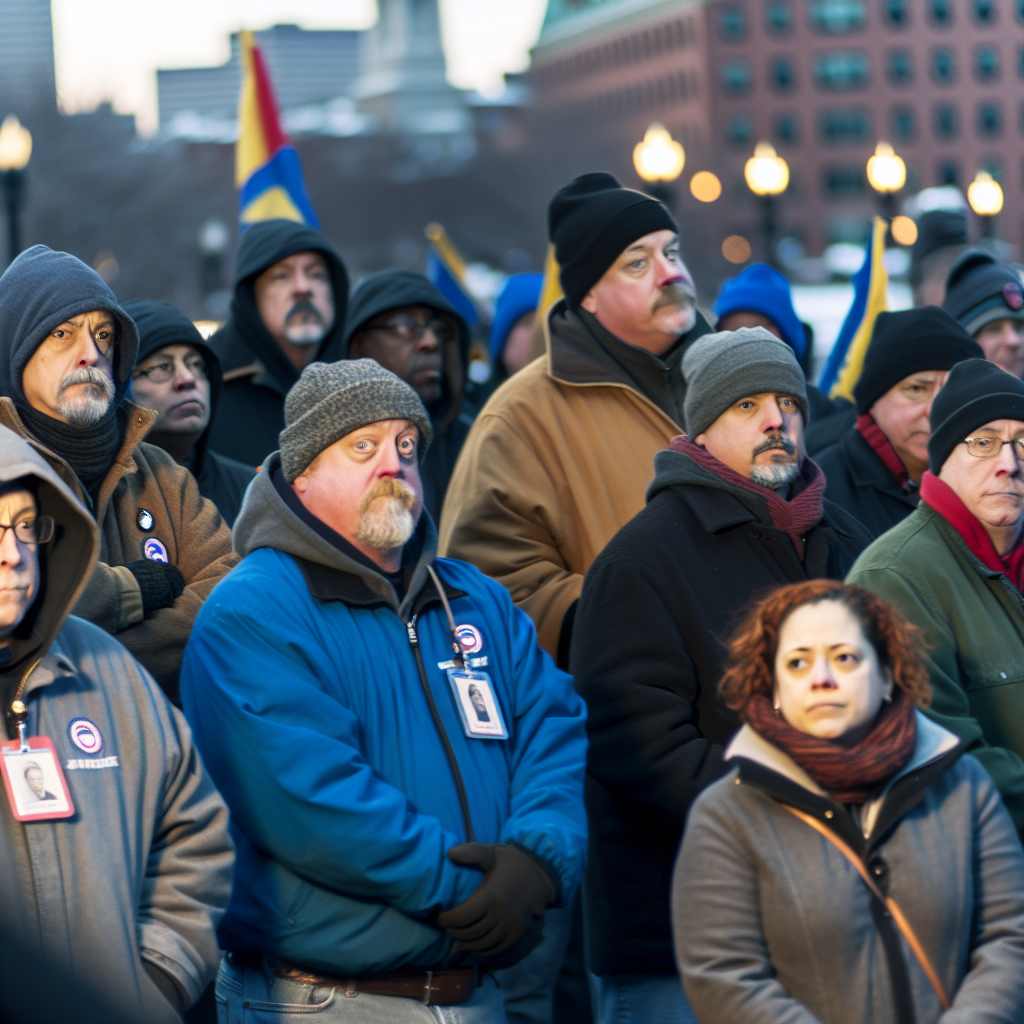
Boston Labor Unions Rally Around Concerns Over Self-Driving Technology
In recent years, the rise of self-driving technology has sparked significant debate, particularly among labor unions in Boston. This article delves into the rallies organized by groups like the Teamsters, highlighting their worries about job displacement, safety issues, and economic impacts. We’ll explore the background of these protests, the specific concerns raised, and the broader implications for workers in the transportation sector.
The Spark of the Rally: Boston’s Stand Against Autonomous Vehicles
Boston, a city with a rich history of labor activism dating back to the early 20th century, became a focal point for protests against self-driving technology in 2023. The Teamsters Union, representing thousands of truck drivers and logistics workers, organized a major rally at the Massachusetts State House. This event drew hundreds of participants, including union members, local politicians, and community supporters, all united in their opposition to legislation that could pave the way for widespread adoption of autonomous vehicles.
The rally was triggered by proposed bills in Massachusetts that aimed to regulate and potentially expand testing of self-driving trucks on public roads. Union leaders argued that such measures prioritize corporate profits over workers’ livelihoods. Historically, Boston’s labor unions have been instrumental in advocating for fair wages and job security, as seen in past movements like the 1919 Boston Police Strike. This latest rally echoes those efforts, framing self-driving tech as a modern threat to blue-collar jobs.
During the event, speakers shared personal stories of long-haul drivers whose careers span decades, emphasizing how automation could render their skills obsolete. The protest also highlighted partnerships with other unions, such as those representing taxi and rideshare drivers, creating a coalition against what they see as unchecked technological advancement.
Deep-Rooted Concerns: Job Loss, Safety, and Economic Fallout
At the heart of the unions’ concerns is the potential for massive job displacement. Self-driving technology, developed by companies like Waymo and TuSimple, promises efficiency in trucking and delivery services, but at the cost of eliminating millions of driving jobs nationwide. In Boston alone, where logistics and transportation employ over 50,000 people, unions fear that automation could lead to unemployment rates spiking, exacerbating economic inequality in a city already grappling with high living costs.
Beyond job loss, safety remains a critical issue. Protesters pointed to incidents like the 2018 Uber self-driving car fatality in Arizona and recent crashes involving Tesla’s Autopilot system, arguing that the technology is not yet mature enough for widespread use. Unions demand rigorous safety standards and human oversight, insisting that machines cannot replicate the judgment and experience of professional drivers in unpredictable urban environments like Boston’s busy streets.
Economically, the ripple effects could be profound. Unions warn of decreased consumer spending if drivers lose income, impacting local businesses. They advocate for retraining programs and regulations that ensure a just transition, drawing parallels to past industrial shifts like the automation of manufacturing in the 1980s, which devastated communities without adequate support.
Broader Implications: Balancing Innovation and Worker Rights
The Boston rallies are part of a national conversation on how to integrate self-driving technology responsibly. Unions are pushing for federal policies, such as those proposed in the AV START Act, to include labor protections. In response, tech companies argue that automation will create new jobs in maintenance and data analysis, but unions counter that these roles often require advanced skills not easily accessible to displaced workers.
Looking ahead, collaborations between unions, policymakers, and tech firms could foster solutions like phased implementation and profit-sharing models. Boston’s activism has influenced similar protests in cities like San Francisco, amplifying the call for ethical AI development that prioritizes human welfare over rapid deployment.
In summary, Boston’s labor unions have rallied powerfully against self-driving technology, spotlighting risks of job loss, safety hazards, and economic disruption. As innovation advances, it’s crucial for stakeholders to collaborate on policies that protect workers. Ultimately, a balanced approach could ensure technology benefits society without leaving behind the very people who built our transportation systems.